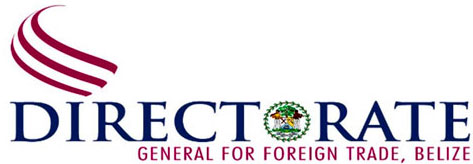CARICOM-CSME
Belize as a CARICOM Member State is a part of the CARICOM Single Market and Economy (CSME). The ultimate purpose is to strengthen the region’s political, financial, and economic leverage in a global world that inhabits large and competitive economies. Belize’s trade interest in better amplified and protected as a member of the CSME since, increased negotiating power as part of the grouping is translated into favorable trade terms and more employment opportunities. Essentially, the CSME’s economic objective is to fully exploit the factors of production that would improve business competitiveness, facilitate trade, and significantly enhance the standard of living of CARICOM nationals.
The CSME is underpinned by 5 core pillars namely;
- Free Movement of Capital: aims to eliminate exchange controls, the use of one common currency and the creation of a Regional Stock Exchange.
- Free Movement of Goods and Services: aims to eliminate trade barriers among and between CARICOM Member States and to streamline national standards to ensure acceptability of goods and services for trade.
- Free Movement of Skills: aims to eliminate the barriers to the movement of people among and between CARICOM Member States for travel and work. The harmonizing of social services, an effective transfer of social security benefits, and establishing common systems for an accreditation and equivalency will be facilitated under this area.
- Rights of Establishment: aims to eliminate the barriers to establishing a business in any CARICOM country.
For more information about the CSME and its benefits and accompanying rights, see the following resources:
CSME – Free Movement and Competitiveness
CSME – Free Movement – Travel and Work (For more information regarding travel and work within CARICOM, visit Belize’s Department of Immigration website at https://immigration.gov.bz/csme/ )
CSME – The Movement of Capital
CSME – The Right of Establishment
CARIFORUM-EU Economic Partnership Agreement (EPA)
The EPA is a trade and development partnership agreement within the framework of the Cotonou Agreement, between 15 CARIFORUM Countries and the 28 European Union (EU) Member States. The EPA establishes a comprehensive trade agreement not limited to trade in goods to promote sustainable development, improving CARIFORUM access to the EU market while granting EU imports improved access to CARIFORUM’s market. The EPA also promotes cooperation in a range of trade-related areas such as competition, innovation and intellectual property, public property, environment, social aspects and protection of personal data. Belize as a member of CARIFORUM signed the EPA on the 15th of October, 2008 and ratified the agreement in May of 2011. The EPA entered into provisional application on the 29th of December, 2008.
Primary Objectives of the EPA
- Poverty Reduction and Eradication through sustainable development
- Promotion of Regional Integration, economic cooperation and good governance
- Promote economic growth, increase investment and improve private sector capacity and competitiveness in CARIFORUM
- Strengthening CARIFORUM-EU Trade Relations
- Gradual Integration of CARIFORUM countries into the global trading system.
CARICOM-Bilateral
Over the years, CARICOM has negotiated five bilateral trade agreements with other countries in the Western Hemisphere specifically in Latin America. They are classified as bilateral because they are undertaken as a single entity or party – as the Caribbean Community.
The agreements fall into two sub-categories: partial scope agreements (PSAs) and Free Trade Agreements (FTAs). All these five agreements share a common feature reflecting a policy adopted by CARICOM- the non-reciprocity for Least Development Countries (LDCs) in market access concessions for goods. However the LDCs are entitled to the full extent of market access benefits available to CARICOM under these agreements. The following is the list of bilateral trade agreements of CARICOM:
